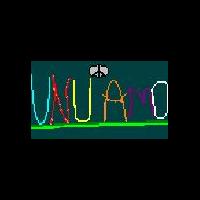Mesaĝoj: 83
Lingvo: English
Greyshades (Montri la profilon) 2009-novembro-23 16:15:46
Miland (Montri la profilon) 2009-novembro-23 16:34:27
Gower's The Complete Plain Words in general, urges caution in the use of quotation marks, where an actual citation is not the purpose. The wiki article above cites the Chicago manual of style as sounding the same note of caution.
ceigered (Montri la profilon) 2009-novembro-23 17:27:07
Greyshades:So to people like me who occasionally use verbal irony (sarcasm) when we write, how do we identify it, if not with quotes? Asterisks maybe? (*maybe*)Nah because asterisks are used for adding emphasis (e.g. the old MS Word shortcut of putting asterisks around a word and pressing enter
 ). From now using sarcasm in writing will have to use '^' marks and be underlined twice.
). From now using sarcasm in writing will have to use '^' marks and be underlined twice. erinja (Montri la profilon) 2009-novembro-23 18:29:14
ceigered:This is the most epic discussion of quote usage I've seen in my life.Haha yet you're still reading it! You clearly fit perfectly into the "language geek" demographic of the Esperanto community. You wouldn't believe what a large percentage of discussions among Esperanto speakers have to do with language - more than half the time, not even discussions of Esperanto itself.
ceigered (Montri la profilon) 2009-novembro-24 07:07:10
erinja:You wouldn't believe what a large percentage of discussions among Esperanto speakers have to do with language - more than half the time, not even discussions of Esperanto itself.And sadly it's people like me who start a large percentage of them

erinja (Montri la profilon) 2009-novembro-24 15:28:49
tommjames:...there are various ways we can interpret the underlying message of the sign that displays “10 items or less”, specifically in regards to the semantic meaning of “10 items”. If you read it “ten items [discrete plural], or fewer items than that.” then clearly the principle holds, and on reflection I think I agree with you that the article I linked to is off-base because it postulates the invalidity of this quite valid interpretation. But as I see it there’s no particular reason the sign has to be read that way. “10 items” could just as well be a descriptor of a limit or threshold above which the amount of items in your basket may not pass. This, I would argue, is a notionally singular entity not plural and thus the sign may just as well read “ten items [abstract idea of a yardstick], or less than that yardstick.” I for one think this way when I see the sign, though doubtless opinions will vary.My opinion on this is fairly straightforward. If you are specifying a noun (item, in this case), then you should make sure the surrounding grammar fits that. Item is a discrete noun, and we use discrete counting, so it makes sense to me that we should be using the discrete comparative to match (fewer). I see it as being a grammatical agreement issue.
I totally understand what you're saying with the "yardstick" comparison, but I consider items to be a discrete counting system. So it's like a yardstick that only measures in integers. Still a case for fewer, in my mind. I don't really understand why someone would want to broaden the use of "less" to encompass discrete nouns as well as continuous ones, when we already have the perfectly good word "fewer". I'm ok with extending meanings of words within reason, but if there is already a word for something, then I don't really like to ignore the existing word and expand the meaning of another word to cover also the meaning of the old word.
jchthys (Montri la profilon) 2009-novembro-24 21:53:09
ceigered (Montri la profilon) 2009-novembro-25 09:36:00
They're having a similar discussion to us.
(can't do proper link due to limited support on the iPhone)
Francisko1 (Montri la profilon) 2009-decembro-08 11:25:17
Francisko
andogigi:As far as English goes, I wouldn't lose a lot of sleep over it. The great mass of people in the US and abroad tend to misuse our language in sundry and creative ways. A slip of the tongue here and there will probably be missed by most people.
I mention this because you simply can't be self-conscious when you learn a new language. The simple fact of the matter is that you are going to make mistakes. It is best to make friends with that fact, accept it, embrace it, and not shy away from it. Too many people are so afraid of making a mistake in their new language that they never use it. Because of this, they never improve. They fall into a vicious cycle which ends with them throwing their hands in the air in disgust.
In short, just start telling yourself that it really doesn't matter.
Rule 1) Don't sweat the small stuff.
Rule 2) Realize that it's all small stuff.
Francisko1 (Montri la profilon) 2009-decembro-14 20:52:15
Getuls Francisko
Greyshades:So to people like me who occasionally use verbal irony (sarcasm) when we write, how do we identify it, if not with quotes? Asterisks maybe? (*maybe*)





